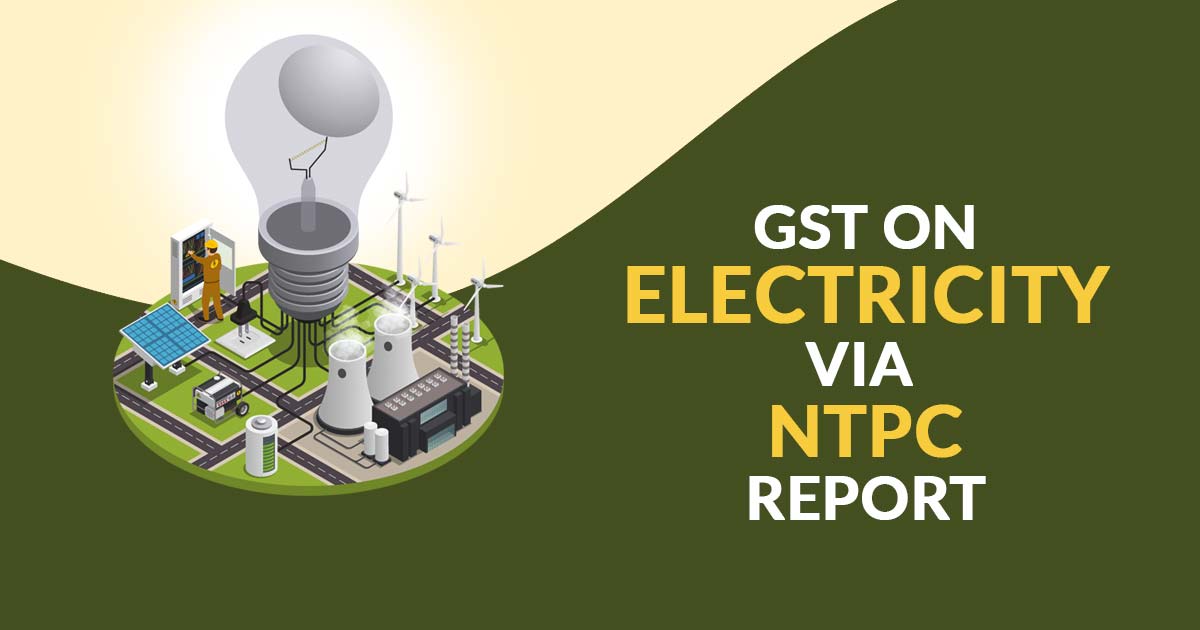
A proposal to draw the electricity under the GST regime will make a loss of Rs 5780 cr towards both centre and state. In the report, a 5% GST rate would be recommended for electricity.
In the case when all the current electricity duties are included in GST the losses surge to Rs 59000 cr and the majority share is to be taken by the states i.e Rs 57000 cr.
Report Depends on 5% GST Along with Half Electricity Duties
The ministry of power and the ministry of finance are thinking to levy GST on electricity. NTPC along with Central Electricity Authority (CEA) is important to study the impact upon the same. The report by NTPC has analysed the impact of 5% GST on the consumers and the government treasury.
The coal fuels 70% of India’s electricity supply is to be taxed beneath the GST regime e, electricity generation, transmission, and distribution are exempted from GST. There are 5% GST and Rs 400 per tonne GST compensation cess imposed on coal as well as 14% royalty on the basic price. Identical to those various elements engaged in the electricity supply chain comes in different GST tax slabs.
“Due to GST exemption on outward supply, power companies (generation, transmission and distribution firms) cannot avail the ‘input tax credit’ on GST paid on goods/services procured by them. This results in an increase in power cost for industrial and commercial consumers, as per the report.”
“Upon the subject of the power distribution sector, NITI Ayog, as well as RMI International, mentioned beneath GST per unit cost of the power would diminish 17 paise across the power value chain on account of availability of input tax credit.” the claim is being supported by EY commenting GST imposition towards the electricity shall draw a cost reduction for the consumers like industrial and commercial consumers.
Read Also: What If Electricity Comes Under GST India?
EY approximated the reduction in the cost of 9 to 12 paisa towards various fuel sources of electricity and 0.05 to 11 paisa (average 16 paisa) for the generation, transmission, and distribution chain of electricity. Under GST the electricity gets privileged and almost all the states levy the electricity duty on the consumers. Those who consume much more electricity would need to pay a higher duty which includes industrial and commercial consumers. Non-availability of ITC under GST in electricity pointed towards higher costs for industries.
“Allowing input tax credit by covering electricity under GST will reduce the power tariff cost for industrial and commercial consumers, resulting in low cost of production of goods and services. Accordingly, Indian products would be a competitive market, a tax expert mentioned.”
Towards the domestic portion, the chargeability of GST would point towards the per unit surge in tariff which the state government must consume via subsidy. This is mentioned that this will be urged to perform for the agriculture sector also. The report indeed adds the subsidy amount imposed will be set off via collected revenue through the state government for the GST charge.